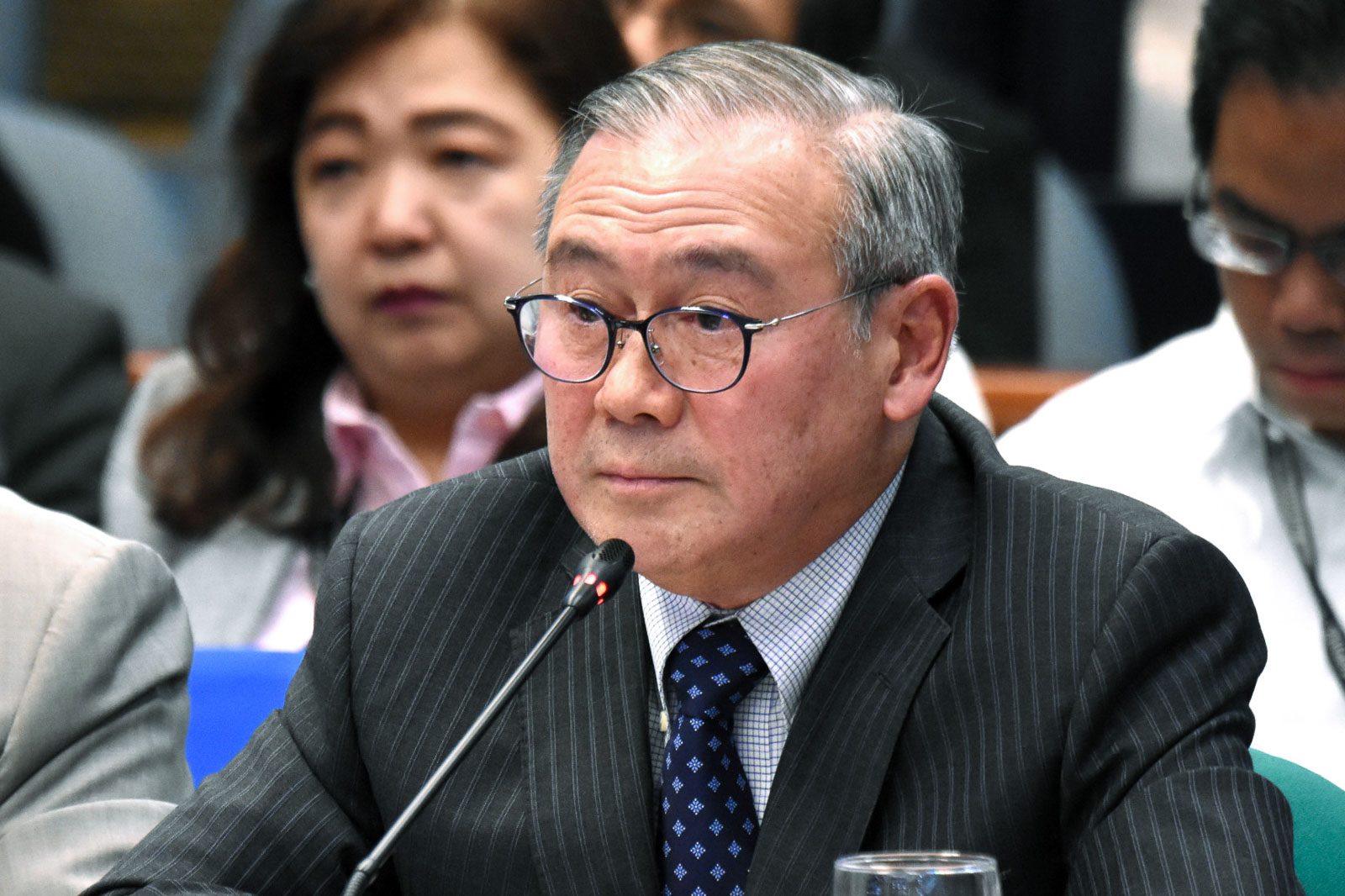SUMMARY
This is AI generated summarization, which may have errors. For context, always refer to the full article.

MANILA, Philippines – Foreign Secretary Teodoro Locsin Jr on Thursday, February 6, warned against the far-reaching consequences and risks for the Philippines if it were to abrogate its Visiting Forces Agreement (VFA) with the United States.
In a speech before the Senate during its hearing on the agreement, Locsin said the VFA has served as a deterrent to Chinese aggression in the West Philippine Sea; facilitated assistance in huge disasters; helped the Philippine military modernize and combat terror; and promoted economic ties not only with the US but its allies.
He pushed for a review of the VFA, rather than its outright revocation. (EXPLAINER: Visiting Forces Agreement)
President Rodrigo Duterte had announced he wanted the deal dead.
Locsin said that while that is the President’s prerogative, “the continuance of the agreement is deemed to be more beneficial to the Philippines compared to any benefits were it to be terminated,” Locsin said.
“Terminating the VFA will negatively impact Philippine defense and security arrangements as well as the overall bilateral relations with the US and perhaps even at the sub-regional and multilateral level. Our contribution to regional defense is anchored on our military alliance with the world’s last superpower,” he added. (READ: With threats to scrap VFA, Duterte gambles Philippines’ security)
Go deeper: Without the VFA, various forms of US assistance would be in peril, according to Locsin. These include the following:
1. VFA ensures operability for other defense pacts with the US such as the 1951 Mutual Defense Treaty (MDT) and 2014 Enhanced Cooperation Development Agreement (EDCA)
- Locsin described the VFA as the “substance” that makes the MDT real. The same goes for the EDCA, he added, which is hinged on the VFA.
- “There would essentially be no practical use for an EDCA in the absence of the VFA which is the legal framework for the presence of US military personnel and US exercises and actual military responses under the MDT. Without them the MDT is just a piece of paper,” Locsin said.
2. VFA allows the US to provide a “total package” of defense equipment would be compatible with others system already in place in the Philippine military
- Current military equipment comes mostly from the US through incremental procurement over the years
- Locsin said military assistance was pegged at $544.55 million for 2016-2019. This is on top of another $200 million the US planned to spend in assistance for 2020-2021.
- “Without the VFA, the US departments of State and Defense will be hard out to get funds from congress for defense assistance programs to the Philippines,” Locsin said.
3. VFA promotes interoperability between Philippine orces and their counterparts
- This is seen through annual joint activities between Philippine and US forces. In 2020, some 390 exercises were lined up for the two militaries.
- Terminating the VFA threatens PH-US capability to respond to threats as the lack of an agreement would hamper the purchase of defense assets and cancel cooperative defense activities.
4. VFA allows for continued support in addressing non-traditonal security threats
- This covers threats like trafficking in persons, cyberattacks, terrorism, illegal narcotics addressed through training, joint exercises, and exchange visits
- Covered here is humanitarian assistance in disaster response and search and rescue missions
- “US assistance in counter-terrorism has proven to be vital,” Locsin said, adding such was “crucial” in the the Philippine military’s victory in Marawi over terrorists.
More to lose: Aside from this, Locsin said the VFA’s “indirect benefits” should be considered in deciding to scrap the agreement. These included the Philippines’ conduct of relations among US-allied and US-friendly countries, and recent US actions that showed commitment to the Philippines (shown through US Secretary of State Mike Pompeo and Defense Secretary Mark Esper’s visits).
Locsin noted the VFA acted as a deterrent to Chinese aggression in the West Philippine Sea and a further “deterrent to any attack form any power.” To terminate it, he warned, would “very likely dilute the US’ commitment to the MDT.”
Other than this, Locsin said the Philippines’ economic relations, investments, and assistance would also be in peril were the VFA scrapped. As it stands, the US is the Philippines’ 3rd largest trading partner, biggest export market, 5th largest sourse of investments, 3rd largest tourism market.
The DFA chief highlighted the US was also the Philippines largest source of grants, accounting for 36.89% of official development assistance given to the country in 2018. “There are no loans,” Locsin said.
High-stakes decision. As Locsin laid out what was at stake were the Philippines to walk away from the VFA, he requested the Senate hold an executive session on the matter.
Throughout the hearing, security and foreign officials were reluctant to state their positions on Duterte’s threats to scrap the VFA, instead laying out the benefits and costs linked to the VFA. Pressed for more details by senators, the officials requested to explain their positions behind clsoed doors. – Rappler.com
Add a comment
How does this make you feel?
There are no comments yet. Add your comment to start the conversation.